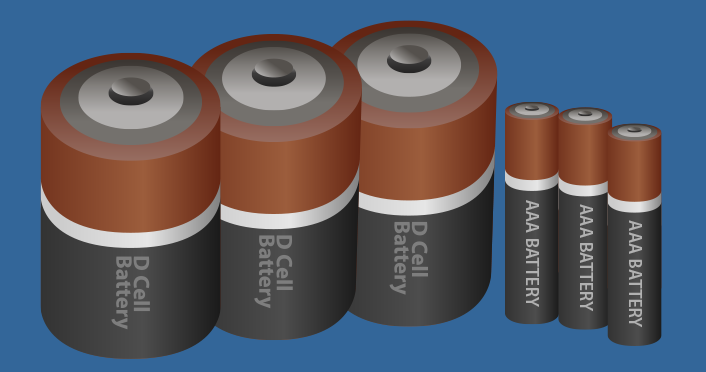
You’re at home during a thunderstorm, the power cuts out, you search for a flashlight — and the batteries are dead. Plenty of us have been there.
When you’re at home, you can wait out such a situation. If you’re working in a hospital, alternative plans are required. For most large medical facilities, backup power is an option, but battery-powered devices are also vital — as are the types of batteries those devices use.
As part of our National Preparedness Month coverage, we’re highlighting the pros and cons of common types of batteries, as well as why they matter for hospitals’ portable suction units.
Alkaline
We’re all familiar with alkaline batteries — and if you’re not, just go run to a grocery store checkout line and enjoy the alphabet of choices. Even with the battery market regularly growing with new technologies, alkalines are still ubiquitous for multiple reasons.
While these are single-use batteries, they are the cheapest on a per-unit basis for that reason. They are also popular because there is no drop-off in power until they are completely dead.
Nickel Metal Hybrid (NiMH)
NiMH batteries, a popular form of rechargeable battery, come in many different shapes and styles, such as large modules and packs or individual sizes that resemble typical alkaline batteries (think of AA or AAA sizes). But NiMH are more expensive per battery, and a charger is potentially another extra upfront cost. However, they can be recharged hundreds of times, so they can make up those costs relatively quickly.
Among the drawbacks, depending on your charger, the batteries may take a long time to fully charge, and the battery performance will degrade with each charge. This is typically a long-term process, so a user should get many good charges before power loss is perceived and even longer before the battery can no longer hold a charge.
Nickel Cadmium (NiCd)
These batteries are similar to NiMH, albeit with a different chemistry makeup, as the name suggests. They come in many forms, including the standard AA, AAA and C sizes, are relatively inexpensive and are easy to recharge.
The major failings with NiCd batteries are lower charging capacity and energy density. To get their best use, they should be fully discharged and fully charged before another use, or they may lose capacity quickly. These batteries were once among the most popular rechargeable batteries, but new developments have reduced their use greatly.
Lithium ion
If you have a cellphone, laptop, set of power tools or any small device, chances are you’re familiar with lithium ion batteries. Their high energy density, light weight, ability to charge quickly and low self-discharge rate make them ideal for devices we use frequently.
While they are ubiquitous, they have some lasting faults. They are costlier than most other types of batteries; they can overcharge and discharge too far, requiring circuitry to protect against that; and they naturally degrade over time.
Sealed lead acid
Powerful and durable, sealed lead acid batteries are among the most popular styles of batteries for medical devices, machinery and other industrial equipment. Although they are heavier than lithium ion batteries, lead acid batteries little to no maintenance, can withstand long periods of inactivity and have a long lifecycle, making them cost-efficient
SSCOR has a range of portable aspirators that use of these batteries, which help the devices maintain consistent suctioning power when the not plugged into an AC outlet. They are an ideal solution for hospitals, surgical centers, ambulances and long-term care facilities.
The DCell advantage
When external power sources are not available, medical professionals will be relying on one or more of these types of batteries to ensure life-saving devices remain in working condition. That makes it crucial to ensure all your battery-powered devices remain charged when not in use or a fresh set of batteries are on-hand.
Suction devices are among the most important pieces of equipment during medical emergencies, particularly when a patient’s airway must be cleared of blood, particulates or other dangerous material. SSCOR’s portable aspirators, catheters and more to meet that need.
As far as battery-powered solutions go, one of our favorite products is the SSCOR DCell Suction, the world’s first and only full-sized portable suction device powered by off-the-shelf alkaline batteries (as you might suspect, it takes D cell batteries). Designed to accommodate long periods of storage, this device is ideal to add to a disaster preparedness equipment cache because it does not need to maintain a charge. With fresh batteries, it is immediately ready for six to nine hours of run time and reliable suction. This is crucial, because if batteries unexpectedly fail or are not providing enough power to maintain consistent suction, it can disrupt procedure and create a dangerous situation for patients.













